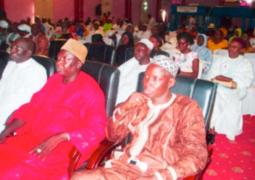The outcome of last Thursday’s presidential election in
Zambians voted in opposition leader Michael Sata as the country’s new president after a tightly contested presidential race, sending signals that their country neither belong to outgoing President Rupiah Banda, who led Zambia for 20 years, nor to any Zambian.
Translated into plain terms, the victory shows that the majority of Zambians are fed up with the leadership of outgoing President Banda.
Once again, the people of
And on Election Day, the Zambian people willingly and openly entrusted opposition leader Michael Sata with the custody of that sovereignty for the next five years.
Yet, with this unalloyed trust come a lot of challenges.
By voting overwhelmingly for Sata, Zambians want to see a continuity of the plethora of development projects the outgoing leadership initiated, and fulfillment of his electoral promises, key among them addressing unemployment and providing better working conditions.
Another lesson to learn from
“The people of
He said previous Zambian presidents had accepted electoral defeat, and “I did not want to be the first one to disturb our democratic process”.
Banda knows very well that power belongs to the people and, as such, he accepted in good faith the outcome of the elections - for the betterment of all Zambians.
As we always emphasize on these pages, African leaders must understand that they are only political appointees that are given a mandate to run the affairs of their various countries, just for a time, and they must, therefore, not see or ever, for even a second, believe or act like the country is their personal property.
We have seen in some instances that once elected into office, some African leaders tend to believe that only they can be trusted to run the affairs of their country.
This is wrong thinking!
Indeed, the scourge of leaders clinging to power, and overstaying their welcome, had blighted the continent for a very long time, and has never been anything but destructive.
Also worth noting in Zambia is the role of the electoral commission, headed by a woman, which declared the election results, and the chief justice of Zambia who was the returning officer and whose role it was to declare the election of Sata as the winner.
The process seen in
This is another example of best practice, and one example other states in
“So two cheers for Democracy: one because it admits variety, and two because it permits criticism. Two cheers are quite enough: there is no occasion to give three.”
E.M. Forster
Read Other Articles In Article (Archive)



